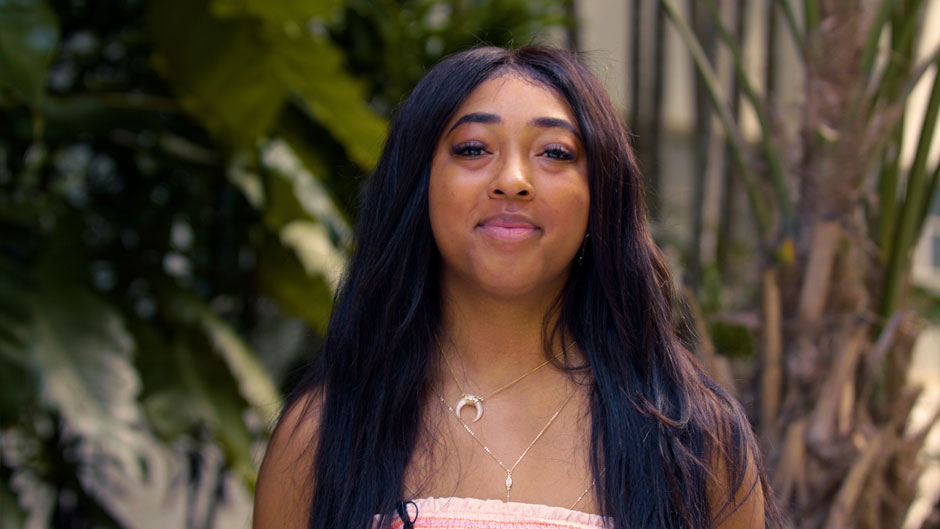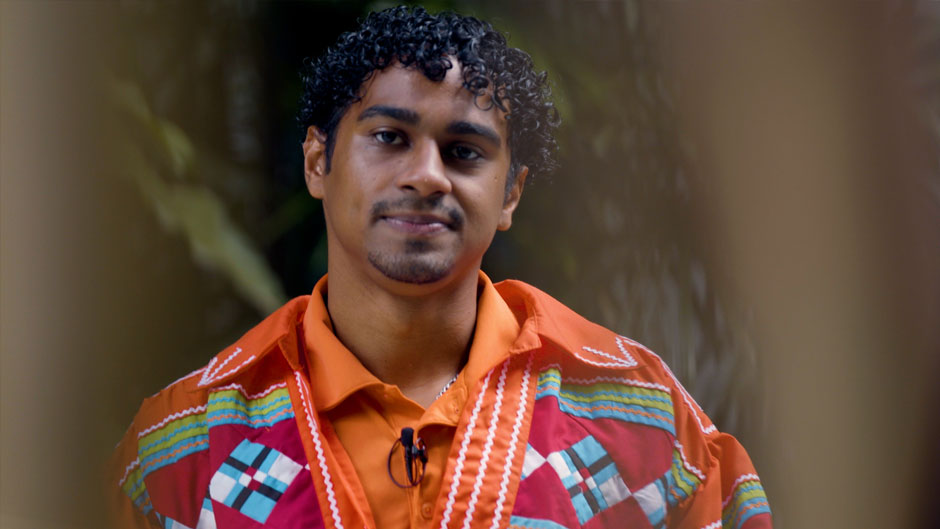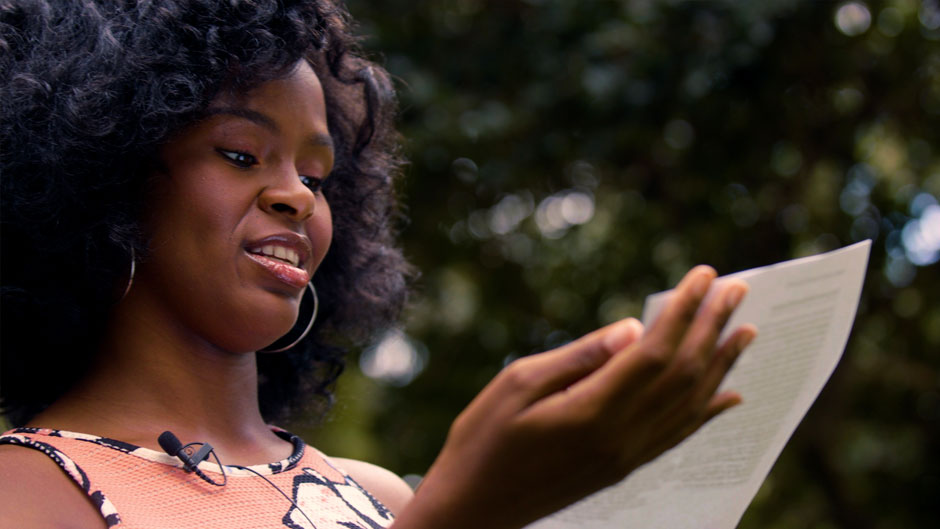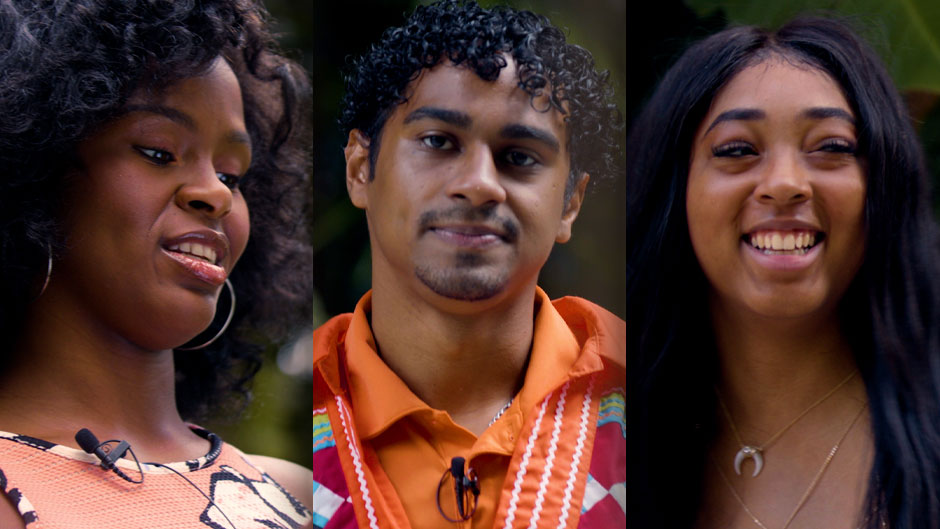It may be difficult to come up with a definition for poetry, but we know a poem when we hear one.
Think of the verses read by poet laureates at presidential inaugurations. Those of Robert Frost. Listen to the 2019 commencement address delivered by Richard Blanco—a poem written for the graduating class titled “Teach Us, Then.”
The words of poets inspire many of us, make us think, lead us to reflect on our past and give us hope for the future.
April is National Poetry Month, which was launched by the Academy of American Poets in 1996 to honor the role that poets play in our culture. To commemorate this month, several University of Miami students currently studying poetry share their craft.
These student poets started writing for different reasons, but they all share a passion for self-exploration, which poetry certainly provides.
Readers should note that the following poems contain graphic descriptions that could be disturbing.
Serene Brielle Thompkins, a sophomore English major on the poetry track, with a minor in human and social development.

Thompkins remembers writing early on in her childhood. At the age of 8, she vowed to use poetry as a primary form of expression to alleviate her social anxiety and mask her timid personality. It became easier to communicate through written words instead of vocalizing her emotions, she said.
Her inspiration was her grandmother, who led a challenging life in England and became a survivor of an abusive marriage.
“I felt obligated to tell her story and to explore the intergenerational trauma that her legacy brought on,” she said. She admires authors like Toni Morrison, Audre Lorde, and Joan Didion, and especially favors contemporary poet Ocean Vuong.
“I strive to have a significant voice in the literary field and provide a form of solace for other people because that is what I find when I read,” she said. “My work is centered around the acknowledgment of the present moment, not clinging onto the past, and relinquishing control of the future.”
Here is a sample of her work that was written for a class assignment.
The Prayer
It is late. I am unwell, wrestling with the indelible image of death.
He matches the top of my trousers with their ends into dense cloth,
rolling woe into tweed cocoons as if some order could bring us back.
I sit in silence, waiting to hear his touch again. I let the sudden rustling
of linen precede his sudden touch. I let him kiss these sick, shriveled lips,
gift him with a taste of claret he won’t forget. I pray, let this make me strong.
Let him love—stamp, and press. Unravel the shell-pink ribbon at my breast,
and lay me down to rest. Let me choke on the laxity of my lover’s language.
Let his palm abrade the lesions. Give it all back—my lashes, lips, and brows.
Let him mold whatever is left of me, slice me open to reveal carmine inside.
Nourish his heart if need be. Take my organs and convert them to scarlet cords.
Leave my limbs so he can climb past our moon and sun. Let him rummage through
the wings of old pictures, curling portraits, and mildewed gowns. My widower: stuck
under a starless lake. My widower remains unreachable, broken, and mutt-brained.
My widower visits the graveyard, prematurely carving his grief into gray stone and clay.
So let me, let me be like a lost star. Let him see me still, flickering in the morning,
and through his mourning, grant him enough will to piece us back together. I pray.
Fabrizio Darby, a junior majoring in health sciences and biology with a minor in poetry.

Darby wants to go into the medical field, but poetry is such a big part of his life that he hopes to integrate it into his practice.
“People look at me funny,” he said. “But I always see myself as a ‘Doctor Poet.’ ”
He believes that if many doctors knew how to express themselves in the way that poetry allows them, there would be “less misdiagnosis and better doctors.”
According to Darby, “the best doctors are the ones that are the most human and try to connect at a human level.”
He began writing poetry in the fourth grade in his homeland of Jamaica. He wrote a poem about climate change that won third place in a local contest.
In Jamaica, many of his poems were derived from admiring nature and his surrounding environment. Once he moved to the United States, he started to write poems that explored his status as an immigrant and as a foreigner adapting to a new land.
Here is a sample of his work, which was for a class assignment.
Grand Memories (for Grandpa)
I can smell the dust even closer to dusk,
musky raindrops of equine sweat on dry earth,
and thunderous applause of palms and hooves.
The bright yellow horseshoe staring me in the face,
with the name of a race,
soon to be the backdrop of a triumphant hand,
holding a wobbling whip for the winning jockey.
My grandfather doesn't have a horse in this race,
yet I see him clutching onto a tiny piece of paper,
with a paradox of loss or luxury.
Grandpa's trembling hands
harnessed around all five square inches of that white debt,
quivered like an arrhythmia.
I would see those trembling hands again.
I can feel the frenzied ferocity furlong by furlong,
It feels like the air is pinching the hairs on my skin,
caressing every single one then plucking them right out, pop!
Goes the gate,
as a cornucopia of clops pound the earth,
and an egregious outburst of “Bring him home now bwoy!”
from my grandfather, who would be bringing himself home a few years later,
when his hands were holding a white sheet.
Not a piece of paper.
Those trembling hands that bare the varicose veins,
are road maps directing a metastatic disease.
That white sheet shook like his hands that very day.
Those trembling hands.
His voice ever so egregious belts nostalgic thoughts of moments
where hooves were therapeutic.
But now the sound of a hoof would make me whip a horse harder than any jockey could.
“Bring it home” the heavens are saying as he approaches his final furlong.
The race was over, and I never even got to see him cross the finish line.
Christell Victoria Roach, in her last year of the poetry master’s degree program, and recipient of the Wallace Stegner fellowship at Stanford University.

A native of Miami, Roach was encouraged to write by Jen Karetnick, a renowned creative writing teacher at her high school, Miami Arts Charter School. Although she was a viola player and was pursuing a career as a musician, Roach fell in love with creative writing.
“Poetry is my language and prose is my world,” she said. She has written plays and short stories, but poetry is her favorite way to express herself.
Roach was first drawn to writing her first poems after an unfortunate incident where she was the victim of a racial slur, she said. She was so confused and hurt by the incident that she started experimenting with words to counter the hurtful words that had been hurled at her and her race.
“I saw poetry as a conversation. And in my poems I could talk about things that I did not really feel comfortable talking about in person,” she said. “So, poetry became a way of exorcising emotions.”
Here is a sample of her work; it was a portion of her thesis.
The Women Leave You with Children
A mother walks into the river, daughter
pressed to her chest. They say she cried
as she swam back to the shore, alone.
I know this love. The mother says there was
no room for her. Water clung to her
body like a child. The daughter moaned
as her mouth filled—a coda. In music
we call this a double return: Blues
in the making. In 1856 Margaret Garner
crossed the Ohio River, pregnant.
She loved her daughter to death.
What kind of love is that? The women
in the Spanish South did too. They birthed
children in oceans, springs, and rivers—
held them under, away from the men who used
their sons as gator bait and daughters as whores.
Red tide bleeds across the ocean;
somewhere a woman uses all her strength
to release a child she does not raise
above water.

